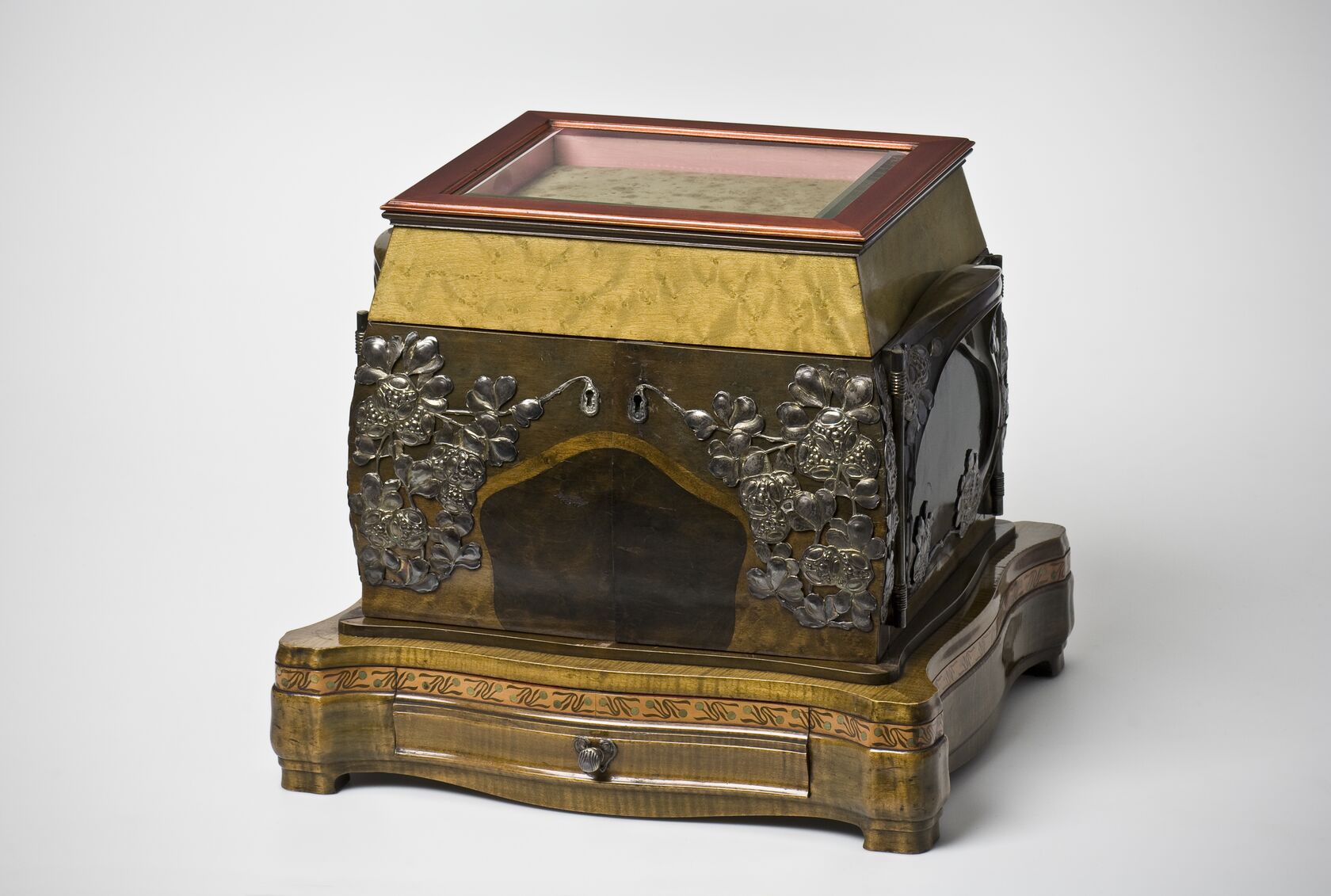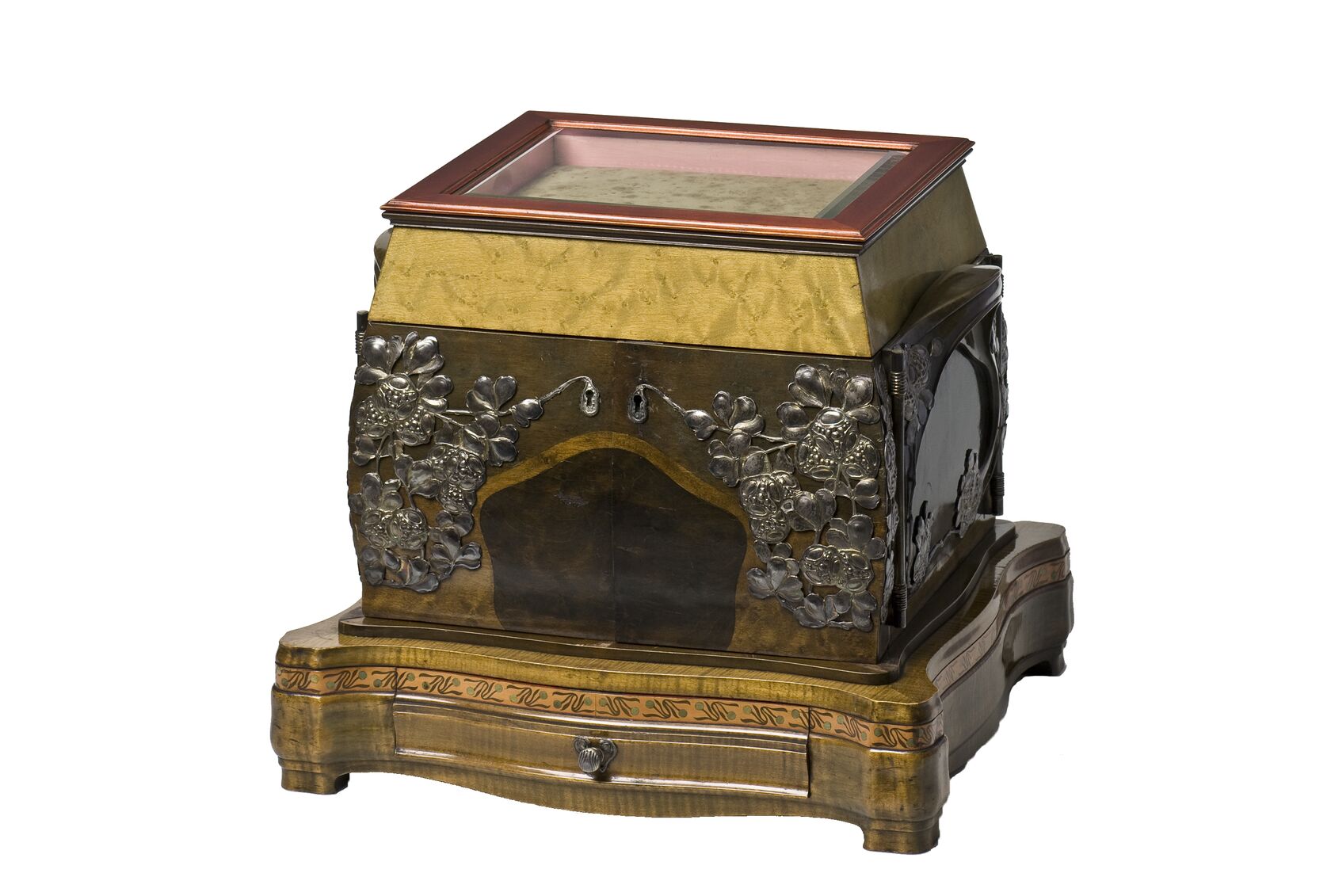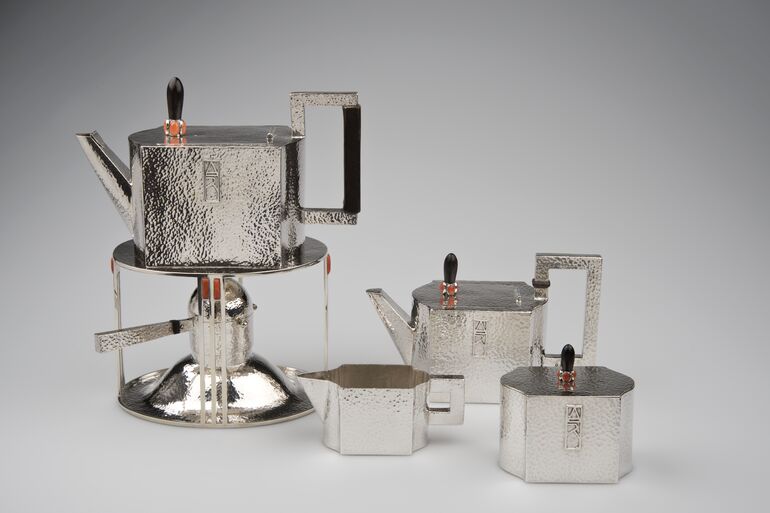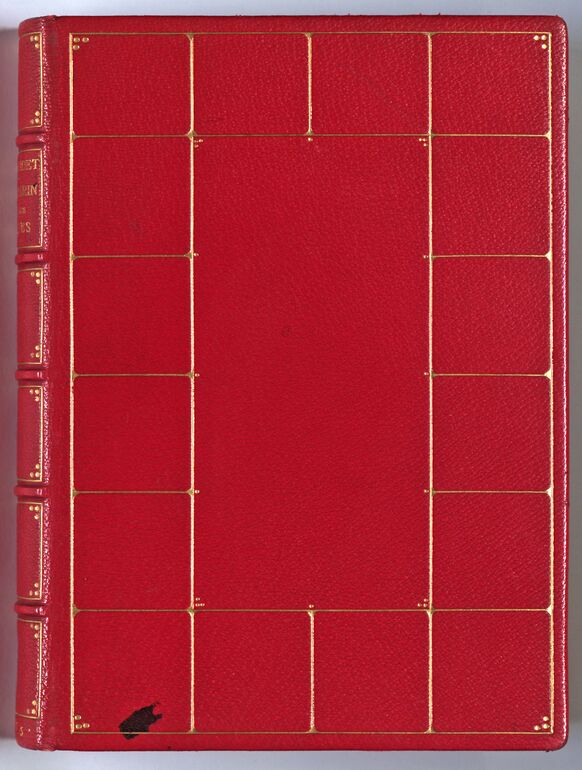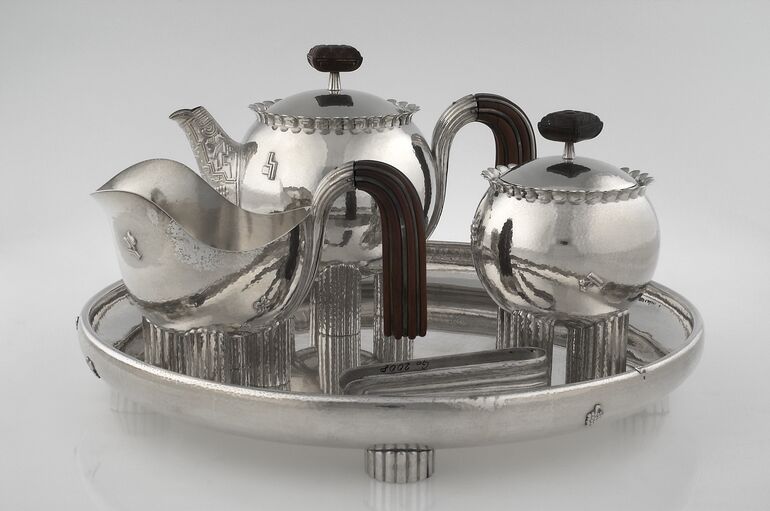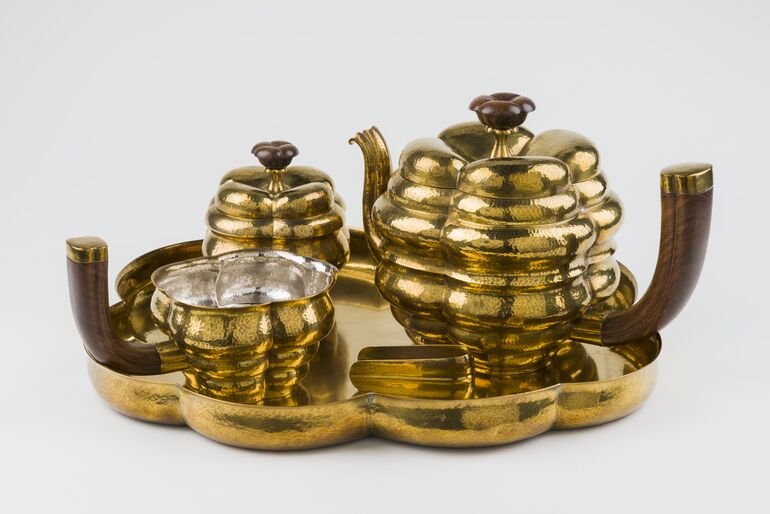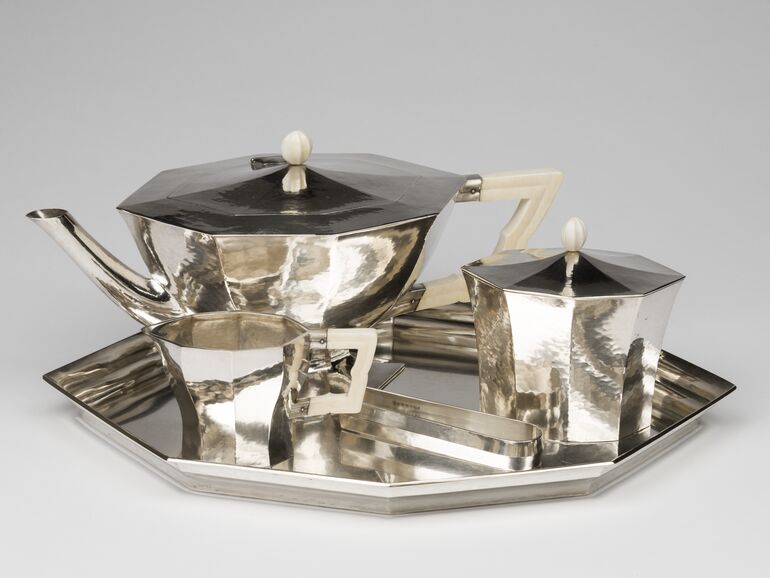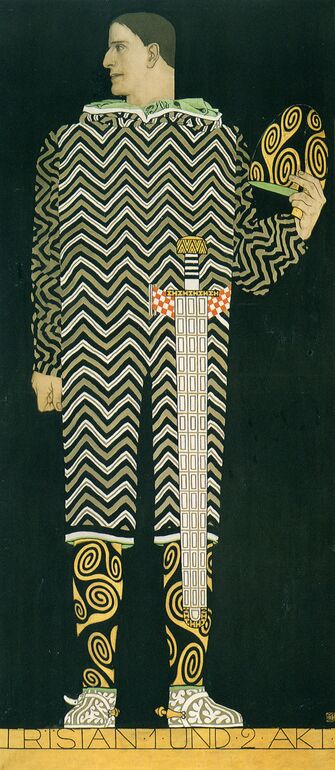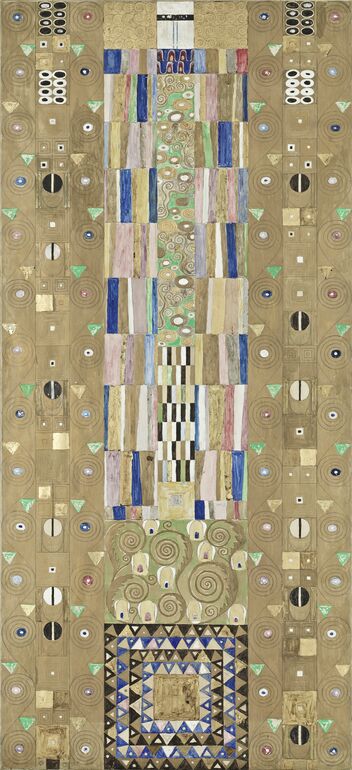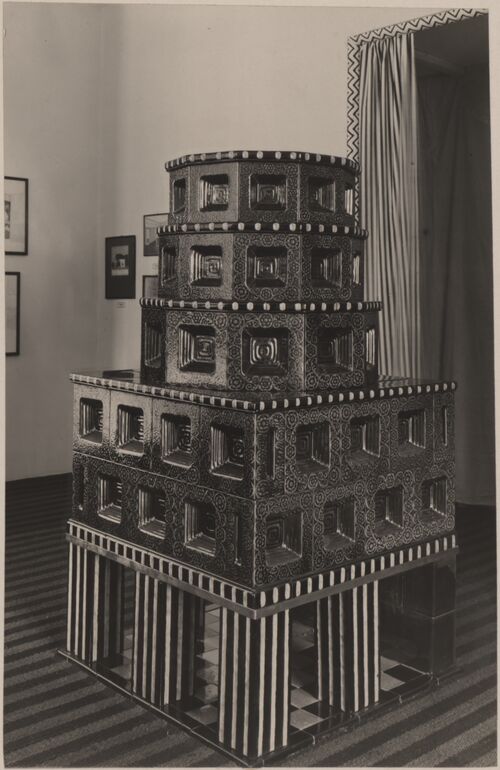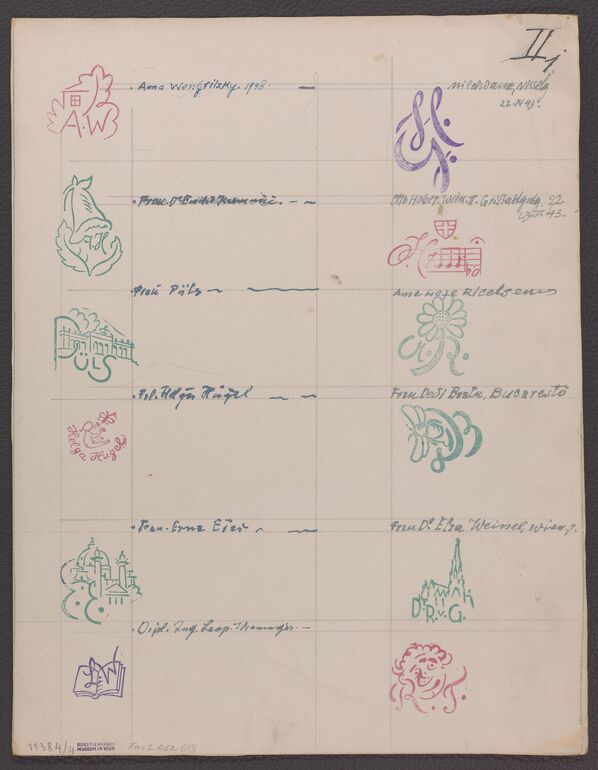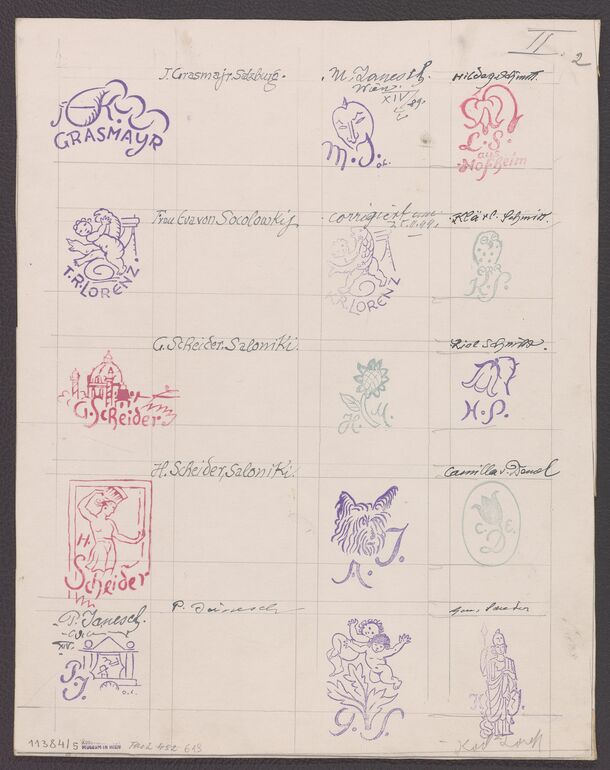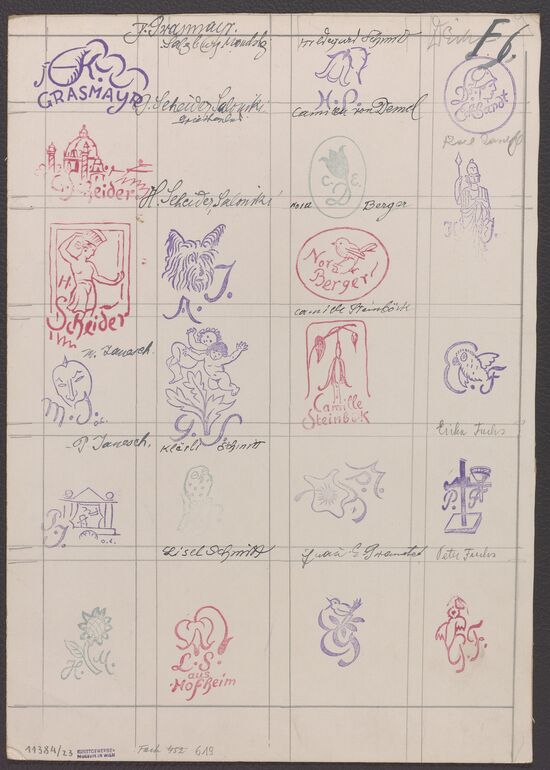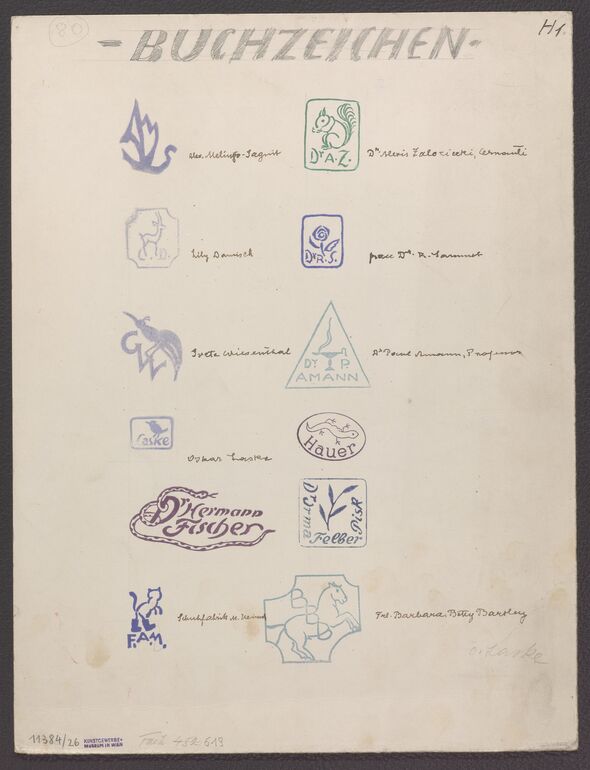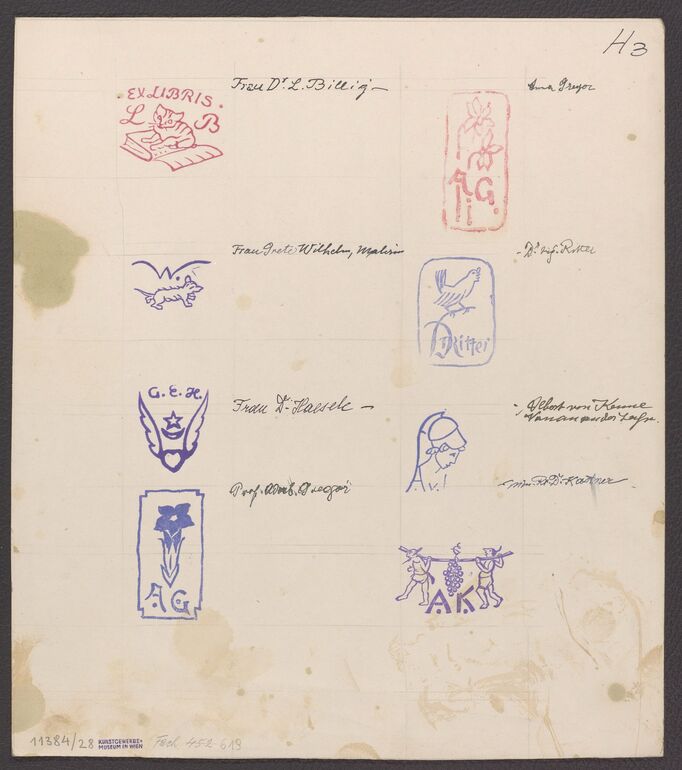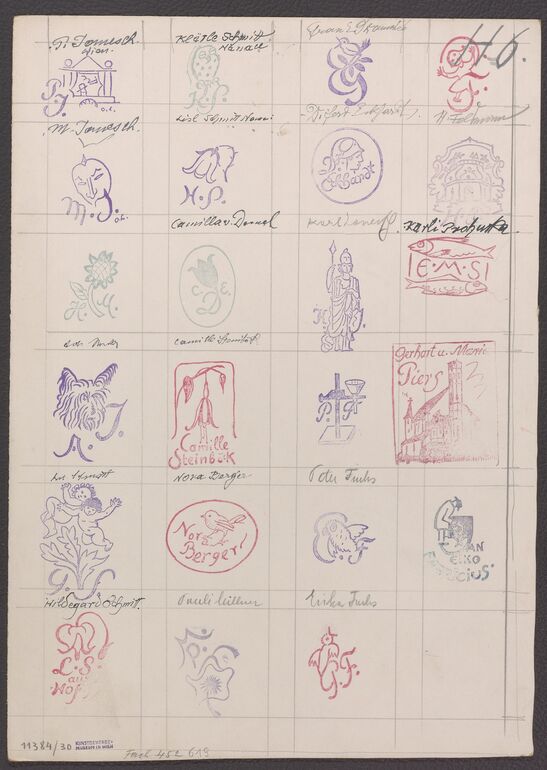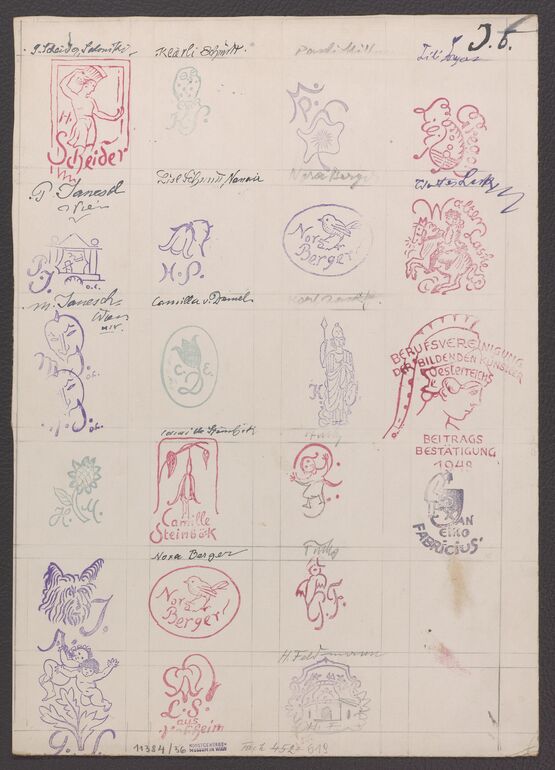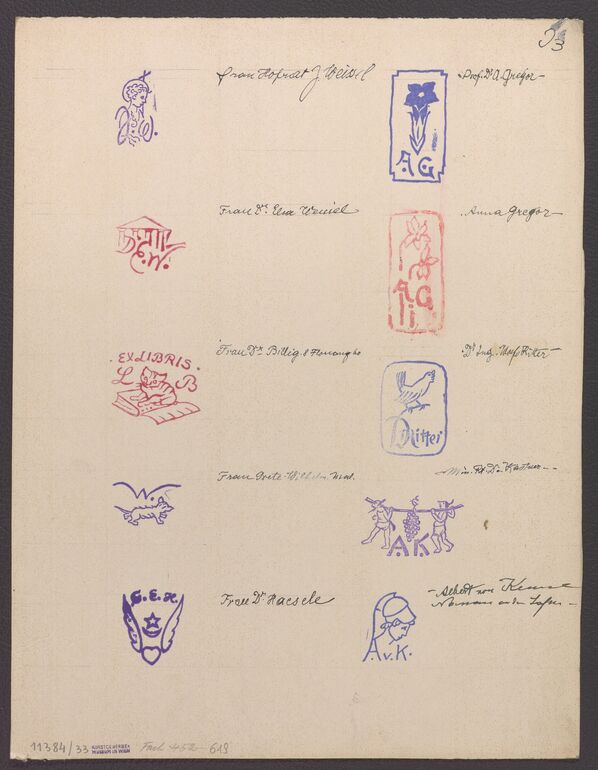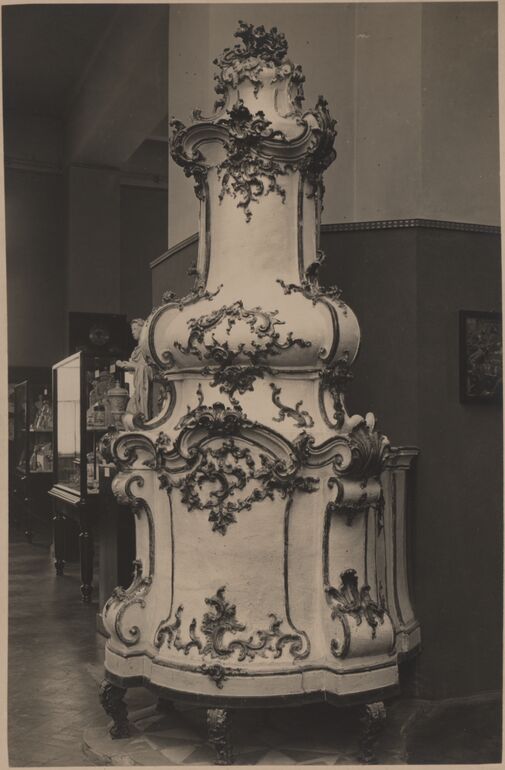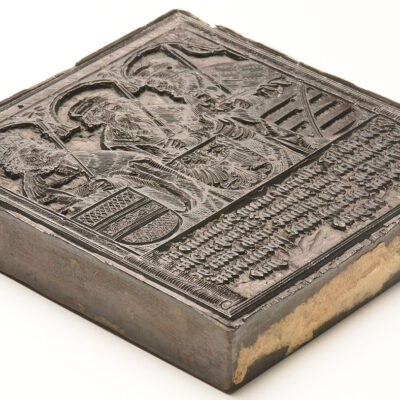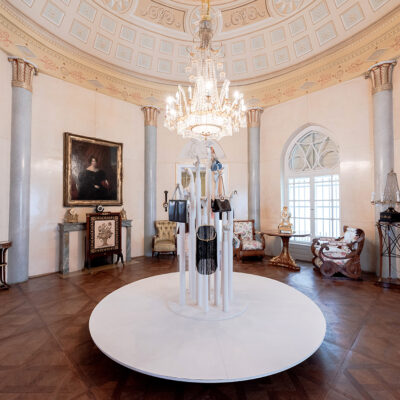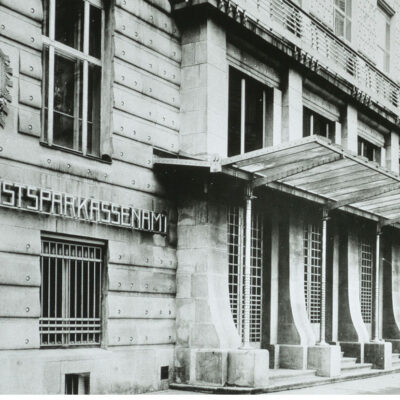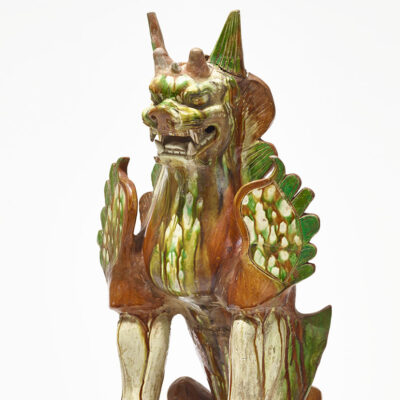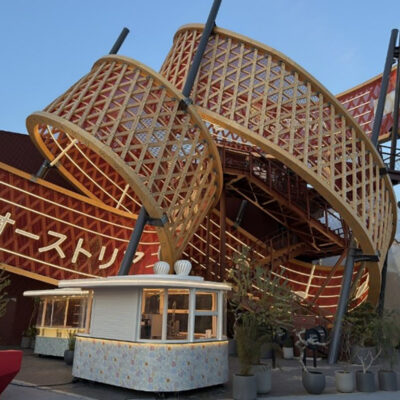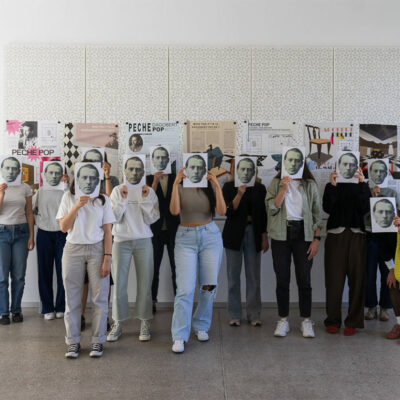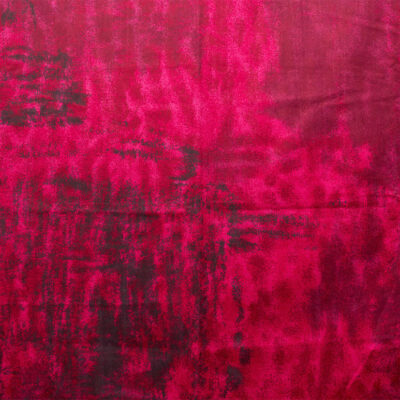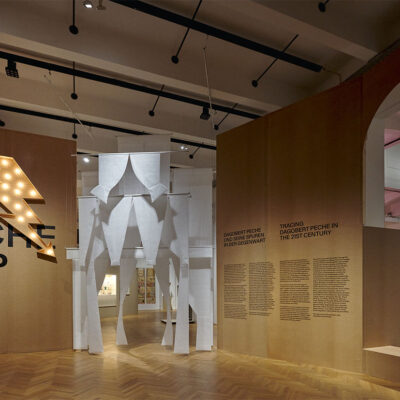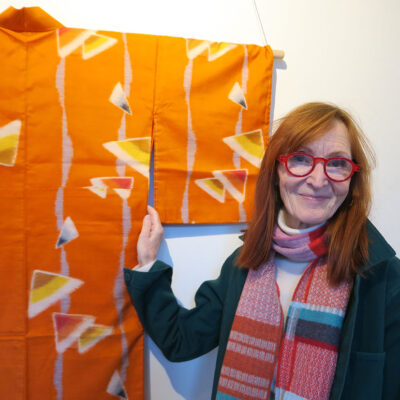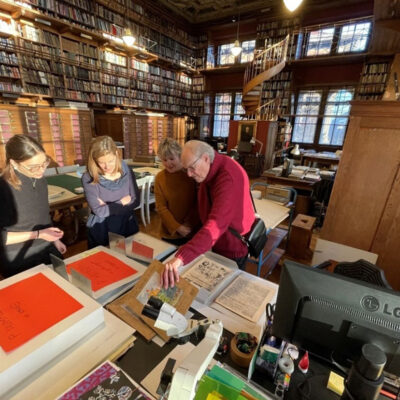1/2
題名
- Jewelry Box from the “Viennese Room”at the Paris World’s Fair, 1900 (descriptive title)
Collection
Production
- デザイン: Josef Maria Olbrich, ウイーン, 1899
- 作者: Ferdinand Spieske, ウイーン, 1900
- 作者: Oscar Dietrich, ウイーン, 1900
時代 | 王朝 | 様式
主題
材料 | 手法
-
Ahornholz,
-
massiv und furniert,
-
naturfarben,
-
hell- bis dunkelgrün und dunkelgrau gebeiztt; Einlegearbeit aus naturfarbenem Buchbaumsholz und aus rot und grün gefärbtem Ahornholz; Holz,
-
rot lackiert; Glas,
-
facettiert; Silber,
-
getrieben; Sämischleder; Lackmalerei
Measurements
- 縦幅: 32 センチ
- 横幅: 36 センチ
- Tiefe: 34 センチ
作品番号
- WI 989
Acquisition
- purchase , 1911
Department
- Furniture and Woodwork Collection
Inscriptions
- signature: OD
Description
-
With the construction of the exhibition building of the Vienna Secession, which was completed in 1898 and proved virtually prototypical of Viennese Jugendstil, the young architect Joseph Maria Olbrich secured for himself recognition
on the international level—and by 1899, he had already been hired as a member of the Darmstadt Artists’ Colony. Even so, the Paris Exposition Universelle in 1900 still showed a Viennese interior done according to Olbrich’s designs. One of the items to be seen within was a jewelry box, the block-like construction and plant-derived décor of which constituted something like an echo of the Secession building: the somewhat bulbous body of this box, made of various naturally colored and stained pieces of maple, rests on a protruding pedestal with decorative moldings and can be accessed via front-opening double doors and a lid on top made of faceted glass framed in red-painted wood. Its decorative motifs, like those of the Secession building, are inspired by the plant kingdom.
(Hackenschmidt, Sebastian)
-
jewelry box, Jewelry Box from the “Viennese Room” at the Paris World’s Fair, 1900, Josef Maria Olbrich, MAK Inv.nr. WI 989
-
https://sammlung.mak.at/ja/collect/jewelry-box-from-the-viennese-roomat-the-paris-worlds-fair-1900_187074
Last update
- 30.10.2025
